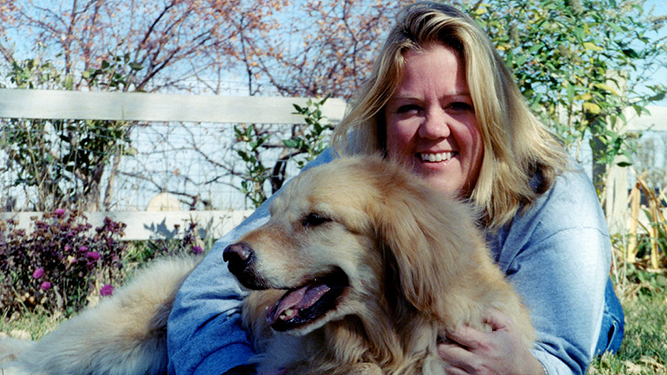Fraser ’82: When Fat-Shaming Precludes Medical Care


“My sister’s cancer might have been diagnosed sooner — if doctors could have seen beyond her weight,” wrote Laura Fraser ’82, in an article that detailed how medical personnel ignored her sister Jan’s serious symptoms as the whinings of “a fat, complaining older woman.”
The article, published on Statnews, a site focused on medicine, health, and science journalism and produced by the Boston Globe Media, received more social media shares, Fraser said, than anything else she has written.
Fraser’s first book Losing It: America’s Obsession with Weight and the Industry that Feeds on It (Random House, 1997) had given her a background knowledge of the biases that work against those with obesity and what she saw in her sister’s quest for help. “Sometimes I think fatness is the last bastion of acceptable prejudice in the United States,” she reflects.
Jan’s pain went unheeded by physicians until irrefutable evidence of dangerous blood chemistry levels, and not the office visits, finally got her medical attention. Told to go immediately to the ER, Jan underwent an MRI, which indicated an enormous mass. Two days later, surgery revealed an aggressive endometrial cancer that had already metastasized. Despite treatment, Jan died six months later.
“It’s beyond me how, three days after Jan’s appointment with a physician’s assistant, she could have had a volleyball sized tumor taken out of her pelvis—and the PA hadn’t noticed it? This tells me that the people she saw didn’t even touch her in the exam. They just looked at her and said, ‘Fat woman! This must be some problem having to do with her obesity.’”
While the process of writing her first book certainly showed Fraser the frustrations that physicians feel in not being able to offer treatment likely to reverse weight gain and maintain it over a lifetime, Fraser also says that medical risks of carrying excess weight have been exaggerated.
“A long-term study of mortality and weight showed that if you added exercise to the equation, weight was a red herring. Thin people who didn’t exercise were three times more likely to die early than fat people who did exercise. It was on the cover of Newsweek 20 years ago—yet very little has changed.
“The medical profession has to face up to the fact that if you tell someone you’ve just met to ‘stop eating the hamburgers and cokes,’ this is not offering treatment. It’s just shaming and it keeps people—like my sister—from getting the help they need.”
Until the stigma of carrying additional weight is eliminated, Fraser has some advice for those likely to encounter this prejudice from practitioners:
Refuse to be weighed: “You can tell just by looking at someone if they have some pounds over their ideal weight—so to weigh someone just to tell them they are overweight is to shame them. Refusing to be weighed also raises the doctors’ awareness and focuses them on the reason for the visit.
Get a second opinion: “My sister didn’t, because she did not want be fat-shamed again. I don’t blame her. But there are physicians who are sensitive. You have to be your own advocate. Insist on an answer.
Fraser also believes that her sister’s life holds a lesson for upcoming generations. “I think my sister’s entire life was overshadowed by a feeling of shame for being fat—and that started as a child. She was very athletic as a child, an amazing skier.
“If no one had ever made an issue of her weight, she might not have become fat—it becomes a self-fulfilling prophecy when you tell a child she’s overweight. She would have pursued her athletics.
“It pains me that she probably could have lived a longer, healthier, and happier life if no one had ever mentioned her weight.”

